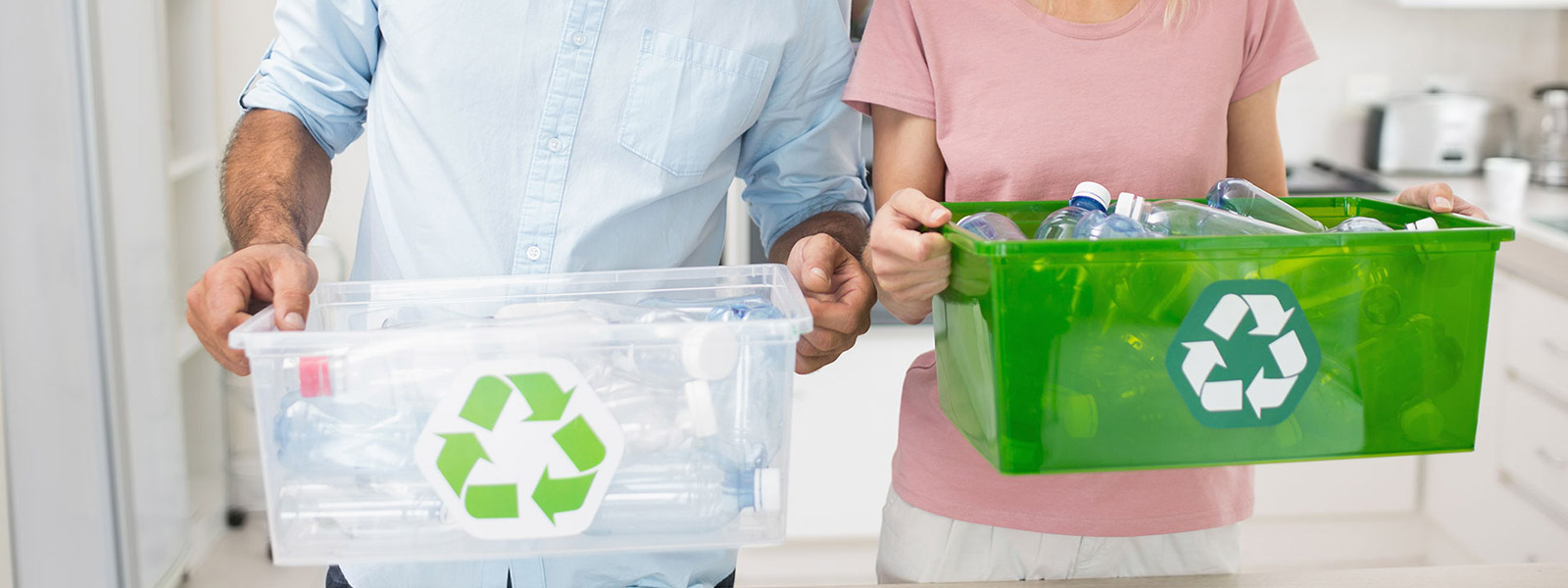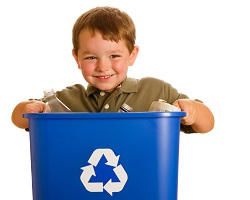Elevate Your Home Recycling with These Practical Suggestions
Posted on 16/10/2025
Are you looking to elevate your home recycling habits and make a significant impact on your environmental footprint? With growing concerns about climate change and sustainability, more and more homeowners are seeking effective recycling tips that are easy to implement and deliver real results. Improving your household recycling can seem overwhelming, but with a few practical suggestions and a little know-how, you can make a remarkable difference. Let's explore concrete ways to enhance your recycling system, boost efficiency, and contribute to a healthier planet -- right from the comfort of your own home.
Why Elevated Home Recycling Matters
Modern lifestyles produce more household waste than ever before, but a significant percentage of that waste is actually recyclable. Elevating your recycling practices does more than just reduce landfill use -- it conserves natural resources, saves energy, and lowers pollution. A well-informed, practical approach to home recycling helps you:
- Reduce your environmental footprint
- Conserve valuable resources
- Promote a cleaner, greener neighborhood
- Encourage eco-conscious behavior in your family
With these effective home recycling strategies, you're not just helping the planet. You're also setting a powerful example for others and making your home a leader in sustainability.

Step 1: Understand What Can and Can't Be Recycled
Know Your Local Recycling Guidelines
Recycling programs vary by city and region. Start by familiarizing yourself with local recycling rules and accepted materials. Visit your municipality's website or contact your waste management provider for up-to-date information.
- Paper: Newspapers, magazines, office paper, cardboard, and mail are typically recyclable.
- Plastics: Check for recycling symbols and numbers. Many areas accept #1 and #2 plastics (like water bottles and milk jugs).
- Glass: Clear and colored bottles and jars are usually recyclable, but not ceramics or window glass.
- Metals: Aluminum cans, tin cans, and clean foil are accepted in most programs.
*Contaminants such as food residue, greasy pizza boxes, or certain plastics (e.g., shopping bags, styrofoam) often do not belong in curbside bins. When in doubt, check with local resources.*
Step 2: Set Up a Convenient Home Recycling Station
Design Your Recycling Zone
The key to successful household recycling is making it easy and accessible for everyone in your home.
- Create a dedicated recycling hub in a high-traffic area such as the kitchen, pantry, or garage.
- Label bins clearly for different materials: paper, plastics, glass, and metals.
- Use color-coded or illustrated bins to help children and guests easily sort recyclables.
- Make room for special items such as batteries, electronics, or hazardous waste (more on this later).
The more convenient and intuitive your setup, the higher the participation from your household.
Step 3: Practice Proper Prepping of Recyclables
Why Preparation Counts
Properly preparing your recyclables prevents contamination, making it easier for recycling facilities to process materials. It also prevents your collection from attracting pests or odors.
- Rinse containers: Remove food residue from jars and cans before placing them in the bin.
- Remove caps and lids: They are often made from different materials and should be recycled separately.
- Flatten cardboard boxes: This saves space and makes collection more efficient.
- Avoid bagging recyclables: Place items loosely in the bin unless your community requests bags specifically.
Step 4: Tackle the Tricky Items
Electronics, Batteries & Hazardous Materials
Some items are not accepted in curbside recycling but can still be responsibly recycled elsewhere. Knowing how to recycle special materials helps you go the extra mile.
- Electronics (E-waste): Old phones, computers, and chargers should go to e-waste facilities or dedicated drop-off locations.
- Batteries: Car batteries, AA/AAA, and rechargeable batteries are hazardous in landfills. Your local hardware store or recycling center often has a collection point.
- Light bulbs: LED and CFL bulbs should not be disposed of in the trash; look for specialty drop-offs.
- Paints and chemicals: These require safe disposal at hazardous waste centers.
Check for community collection events or local programs dedicated to these types of waste. Your commitment to proper disposal keeps toxins out of our environment.
Step 5: Cut Down on Contamination
Common Mistakes to Avoid
Contamination is one of the leading reasons recyclables end up in landfills. Even a single unwashed container or a bag of dirty recyclables can compromise an entire batch. Avoid these common mistakes:
- Don't recycle greasy pizza boxes: The oils soak into the cardboard, rendering it non-recyclable. Compost or trash these instead.
- Keep plastic bags and wraps out: These tangle machinery at recycling facilities and should be returned to participating stores.
- Be wary of "wishcycling": Placing items in the bin that you hope are recyclable (but aren't) creates more issues. When unsure, throw it out or research further.
Step 6: Reduce and Reuse Alongside Recycling
Rethink Before You Recycle
While elevating your home recycling is vital, reducing and reusing are equally important. The most effective way to manage waste is to avoid creating it in the first place. Prioritize these eco-friendly habits:
- Opt for sustainable packaging: Choose products with minimal or recyclable packaging.
- Use reusable containers and bags: Eliminate single-use plastics in your kitchen and shopping routine.
- Get creative with reusing: Repurpose glass jars for storage, old t-shirts as rags, and cardboard boxes for crafts or shipping.
- Compost food scraps: Keep organics out of landfills and create nutrient-rich soil for your garden.
Adopting a reduce, reuse, recycle mindset helps maximize your positive impact.
Step 7: Educate and Involve the Whole Family
Make Recycling a Family Affair
To elevate recycling at home, everyone needs to be on board. Teach kids about the importance of waste reduction and proper sorting techniques. You can:
- Make recycling fun: Set up weekly recycling challenges or reward systems.
- Share age-appropriate videos or games: Engage children through interactive platforms about recycling and the environment.
- Assign tasks: Let each family member be in charge of their own recycling bin or supervise a specific material type.
- Lead by example: Your actions send a strong message about the value of sustainability.
The more your family understands and participates, the more successful your home recycling initiative will be.
Advanced Recycling Tips for the Ambitious Recycler
Go Beyond the Basics
Ready to take your household recycling efforts to the next level? Try these advanced techniques for a greater impact:
- Sign up for curbside composting: If available, this service helps divert food and yard waste from landfills.
- Participate in TerraCycle programs: Recycle hard-to-process items like snack wrappers, coffee capsules, or beauty products.
- Host a community recycling drive: Collect items your city doesn't accept and coordinate with specialized recyclers.
- Explore zero-waste shops: Support stores that let you refill containers with bulk products, reducing packaging waste.
Pushing beyond standard curbside practices helps build a truly circular, waste-free economy.

Tech, Apps, and Resources to Amplify Your Recycling Game
Digital Tools for Smart Recycling
Several mobile apps and online resources can make home recycling improvement easier and more effective. Consider using:
- Recycling search directories: Find out where to recycle tricky items like electronics, paint, or large appliances via Earth911 or RecycleNation.
- Waste sorting apps: Many municipalities offer apps with searchable lists of recyclable items and guidelines.
- Eco-tracking tools: Monitor your household waste reduction and set monthly recycling goals.
Harness these tools to boost your recycling efficiency and ensure you're always up-to-date with the latest best practices.
Conclusion: Step Up and Make a Difference
By following these practical suggestions for home recycling, you can not only streamline your recycling process but also foster a sustainable mindset within your household. Remember, effective recycling is more than just sorting bins -- it's about making informed choices, reducing waste, educating your family, and serving as a model for others in your community.
- Stay informed about your local rules and special recycling opportunities.
- Design a system that works for your family -- convenience is key!
- Promote involvement and continual improvement.
Every small action adds up. Take the initiative to elevate your home recycling with these practical strategies and become a champion for the environment right where you live.
Ready to take the next step? Share these tips with friends, neighbors, and your community to amplify your impact -- because the future of our planet starts at home.
Latest Posts
Why We Need Effective Waste Clearance Services
Create a Productive Environment by Clearing Out Your Office Successfully
Elevate Your Home Recycling with These Practical Suggestions

 020 3409 4688
020 3409 4688 020 3409 4688
020 3409 4688




 House clearance
House clearance Waste Removal
Waste Removal Here at Rubbish Collection we offer an efficient and affordable house clearance at the best price. We can perform full domestic clearance in London, removing...
Here at Rubbish Collection we offer an efficient and affordable house clearance at the best price. We can perform full domestic clearance in London, removing... Waste can accumulate quickly and before you know it, it’s everywhere and taking up lots of space. If you would like it professionally removed, hire Rubbish Collection for the...
Waste can accumulate quickly and before you know it, it’s everywhere and taking up lots of space. If you would like it professionally removed, hire Rubbish Collection for the...





